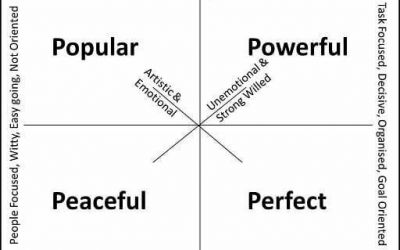
Industry Secrets to Supercharge Your Hiring Process
Technology is both a blessing and a curse. The global marketplace has us more connected than ever, but this brings competition, and it’s climbing fast. Smart companies are already adapting their products and services to stay ahead of the pack, and I can tell you right now…
If you’re not rethinking your approach to hiring, you’re already falling behind.
Arie P. de Geus, former head of Shell Oil’s strategic planning group said it best. “The ability to learn faster than competitors may be the only sustainable competitive advantage.” But more than just learning, you need to understand the best practices in your industry and incorporate each into your own organization. Because when it comes to hiring, especially in Japan, candidates have the power.
To build a strong pipeline of talent, recruitment teams need to accept the new dynamic and respond accordingly or risk alienating the best and brightest potential employees.
In consultation with the procurement director of one of the world’s leading chemical and pharmaceutical firms, we discussed this trend in detail. Our job was to assist in a review of their internal HR department and answer a simple question.
What’s needed to win the war for talent?
Reflecting on my experience in recruitment, I started to consider the scores of companies Morunda has worked with. From the nature of their internal departments to the specific behaviors which resonated with candidates. As it turns out, almost all companies can be classified into three different categories, each with their own features. I’ll explain these in a little more detail before I share my suggestions for creating a winning recruitment team in your organization.
The “High Maintenance” organization
Chaos is the term best describing a high maintenance recruitment team. With emotions running high, job specifications are changed on a whim, and open positions are often put on hold as priorities shift or placements are rushed to be filled internally. As an outsider looking in, you’ll notice a distinct lack of long-term strategy, with recruitment decisions made on the fly. There is little thought to succession planning or the best needs of the larger organization.
If your organization is…
- Excited to hire fast and screaming for big stacks of applicants
- Unable to decide on specific job descriptions and requirements on an open role
- Following strict rules and regulations yet continually moving the goal posts
- Struggling to find “perfect” candidates against a list of unrealistic expectations
- Facing high turnover while employee engagement is suffering
- Ultimately rejecting candidates and promoting internally
You may be facing a high maintenance organization, especially if HR is often the last one to know what’s actually going on in the hiring process.
The most significant risks include alienating top candidates or missing out on quality hires because of the continually changing circumstances. These types of companies may even struggle to attract talent, and when offers are finally made they are often too late, and turned down.
Unable to handle the lack of decisiveness, inconsistent communication and slow processing times, top talent move on to greener pastures.
The “Solid, Slow and Steady” organization
Trusting the tortoise will ultimately succeed, these organizations feature a traditional approach to hiring, which is not always ideal in the current marketplace. Solid, slow and steady organizations are typically big-brands with a strong history in Japan, but it’s their overconfidence which turns candidates away. Because top candidates aren’t always happy to wait for a prolonged hiring process to complete, or jump through a convoluted set of hoops to secure an offer.
If your organization is…
- Featuring a strong connection between HR and the line management team
- Including HR as a critical player in the growth of the company
- Needing sign off from multiple stakeholders to progress with a candidate
- Taking a long time to reach decisions, but stands by them once made
- Steadily growing in the market, perhaps even with a long history in Japan
- Believing they are a sought-after employer, which candidates are willing to wait for
You’re likely in a solid, slow and steady organization, especially if you’re looking at exceptionally low turnover yet always seem to miss out on the best candidates.
The risk with these organizations is their arrogance, as they forget the war being fought for top talent. The best candidates are quickly swooped up by the competition, companies who are more agile, and willing to act fast when an opportunity presents. Solid, slow and steady is often too slow.
The “High Performance” organization
Finally, we reach the ideal state. The type of organization you should strive to emulate, and my favorite kind of company to recruit for. They mean what they say, and say when they mean, which translates to no hidden agenda or moving goal posts. High-performance organizations are dynamic, ready to move quickly and make a series of smart decisions which ultimately lead to success after success in their field. As a recruiter, I don’t have to explain the war for talent, and candidates are not looking at unnecessary obstacles or wasted time throughout the interview process. Decisions are made quickly, with offers soon to follow. More often than not, high-performance organizations secure top talent.
If your organization is…
- Featuring line managers accessible and willing to make quick, solid decisions
- Understanding HR is integral to finding and developing top performers
- Able to schedule interviews and send offers in a timely fashion
- Fast moving, yet flexible to adapt to market conditions for strong growth
You’re likely in a high-performance organization, especially if HR is given credit for the role they play in finding, recruiting and onboarding top talent.
Which is a good thing.
High-performance organizations are primed to succeed in the modern marketplace, and overcome the challenges of a tight labor market. Done right, you’ll command respect from candidates and their key stakeholders, providing top talent with all the information they need to decide to join your team.
Guidelines for developing a winning recruitment team
There is no doubt in my mind successful businesses are those ready to adapt. Charles Darwin famously said, “the species that survives is the one that is able to adapt to and to adjust best to the changing environment in which it finds itself.” Companies must adapt to remain competitive.
In the current job market, companies are fighting for bilingual talent, and the best professionals will be fielding multiple offers. With unemployment in Japan at a decade-low of 2.9 percent, you can bet top candidates are always being pitched and approached, allowing their pick of organizations.
Talent is in high demand, and recruitment teams need to adjust their approach accordingly.
If you’ve been struggling to attract top performers, consider the type of organization you’re in. It may be time to start making changes, and updating your internal recruitment process.
You can get started by:
- Doing your background research before starting the job search process. The more information you have on the skills, qualifications and everything else needed to succeed in the role, the faster you’ll be able to move forward once you identify a potential candidate.
- Getting creative with job postings to attract and excite candidates. Instead of just recycling tired old lists of job requirements, give candidates an idea of what a typical day will be like, and what they can expect once they start working for you.
- Being willing to consider all options, even potential candidates from a different background. Hiring talent with a new outlook can spark fresh ideas and innovation, and introduce best practices to your teams from outside industries.
- Building an attractive brand for your company, promoting what is on offer should a candidate decide to join your organization. Showcase company culture through social media, and demonstrate there is more to the job than the role being filled.
- Being upfront with candidates about their long-term opportunities. The best talent is looking for positions they can develop in, along with mentoring and possibilities for advancement. HR plays a crucial role in developing the talent pipeline and must communicate it effectively.
The war for talent is on in Japan, and companies need to do more.
With every day that passes, the companies unwilling or unable to address the inner workings of their recruitment teams are losing their edge. Becoming less competitive, less attractive as a place of employment.
Smart HR teams are adapting and creating plans for the long term because they are willing to cater to the demands of the modern workforce. Setting their companies up for success by creating workplaces candidates respect, and rethinking their approach to hiring.
What type of organization are you striving to be?
Recent Posts
- Top sporting coaches and business leaders have a lot in common
- Elevating Leadership: Insights from Japan’s healthcare sector
- How to be a country manager
- Here are four things your firm can do to attract and retain top talent in Japan’s pharmaceutical and medical device industry:
- Build a Strong Employer Brand – What can you do if your company stinks?


